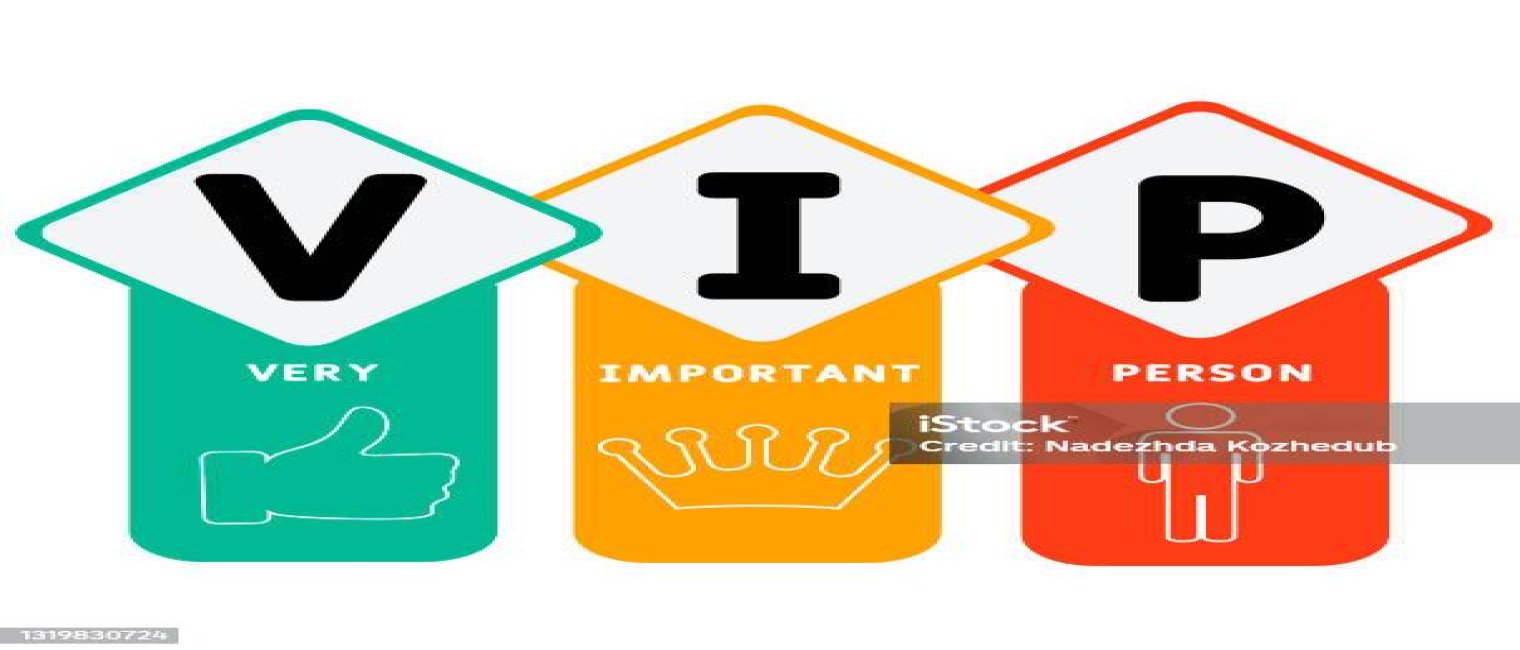
VERY IMPORTANT PERSON
- By Abhinav Ojha, Cultural Secretary
- Tue,17 Sep 2024
Have you ever been stopped in your tracks by a plump policeman as a convoy of politicians or bureaucrats’ speeds past? In that moment, don’t you feel the aura of futile pride radiating from those VIP vehicles? But if you think about it, what we’re witnessing isn’t pride—it’s an inferiority complex, deeply rooted in history. It’s not your fault. It goes back to our forefathers, once retainers of the British Empire, who internalized the sense of hierarchy and submission. And even after 75 years of independence, we remain stuck in this "Saheb mindset," where a privileged few still demand special treatment, as though they stand above the rest of us. What compelled me to write this was a recent incident in Bombay during Ganesh Chaturthi, where footage showed VIP and actors(camera bhakts) —being given special treatment. These celebrities were carefully taken care of, posing for pictures in front of Lord Ganesha, while ordinary devotees, truly there out of devotion, were pushed aside as if they were animals. The festival of Ganesh Chaturthi is meant for devotion, humility, and unity, yet it’s being overtaken by VIP culture. One has to wonder—will the deity be happy seeing such inequality and disregard for the genuine devotion of the common people? In 2017, the Government of India made an effort to curb VIP culture by banning the use of red sirens for all government officials, symbolizing an attempt to promote equality. However, despite this move, the mentality of entitlement and privilege remains deeply ingrained in our society. VIP culture continues to thrive, not through sirens alone but in the special treatment given to the powerful and affluent, reflecting that true change cannot come from policies alone. It requires a shift in our collective mindset, which still holds onto these hierarchies. When we aspire to emulate the societal standards of countries in Europe and America, we must also adopt their mindset. For instance, I was recently struck by a French travel vlogger's reaction to local police trying to escort him from a dicey area. He felt it was akin to being treated like a prisoner, highlighting how much he valued his independence and privacy. In contrast, in India, many people, including common citizens, might dream of having a police escort, viewing it as a mark of status and privilege. This stark difference in attitude underscores the need for a cultural shift, where we view equality and self-worth without relying on symbols of status or authority. I am not against providing security to individuals who need it, but having a convoy of 50 cars or more is simply unacceptable. What kind of leader or public figure feels the need for such excessive protection? True leadership is not about surrounding oneself with an entourage but about being accessible and confident. Lord Rama, during his exile, wandered alone, and no one dared to harm him— he was not protected by a massive convoy, but his righteousness spoke for itself. Leaders who demand such extreme security may be driven by fear, often reflecting an awareness of their own wrongdoings. Real leaders are those who inspire trust and respect, not those who live in constant fear of their own people. Even Article 21 of the Indian Constitution guarantees the right to life and personal liberty to all citizens. This fundamental right ensures that every individual, regardless of their status or position, is entitled to freedom and protection under the law. The excessive use of security measures, such as convoys and stopping traffic, contradicts the spirit of this constitutional guarantee. In essence, the day the term "VIP" becomes synonymous with the common man or citizen. will be the day our nation truly becomes resilient and successful. When leaders and public figures are no longer set apart by privilege but are instead seen as equals among their people, it will signify a profound shift towards true democracy. This change will reflect a society where respect and equality are not just ideals but are woven into the very fabric of our everyday lives. Only then will we have achieved a state where every citizen is valued equally, marking a significant milestone in our nation's progress. Written by: Abhinav Ojha, Cultural Secretary
